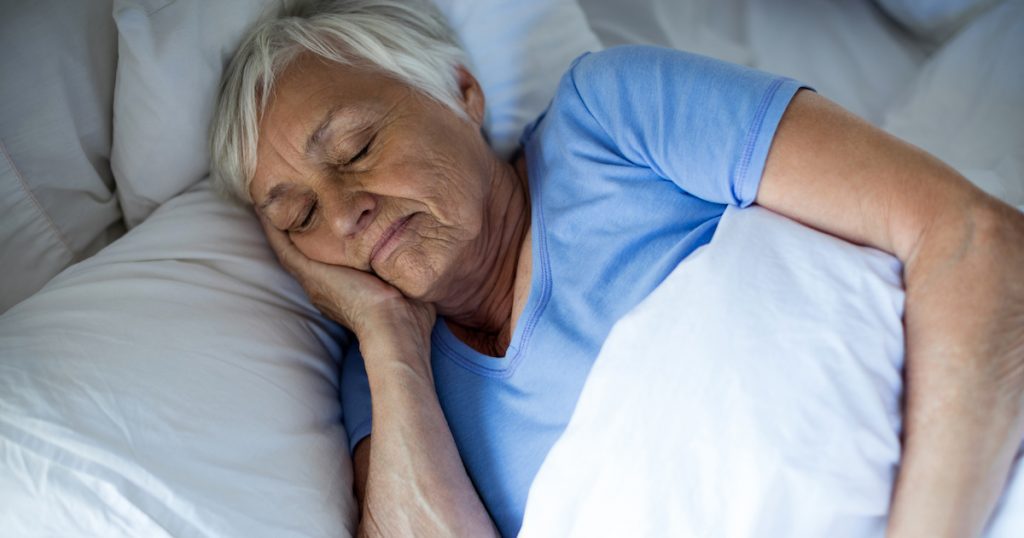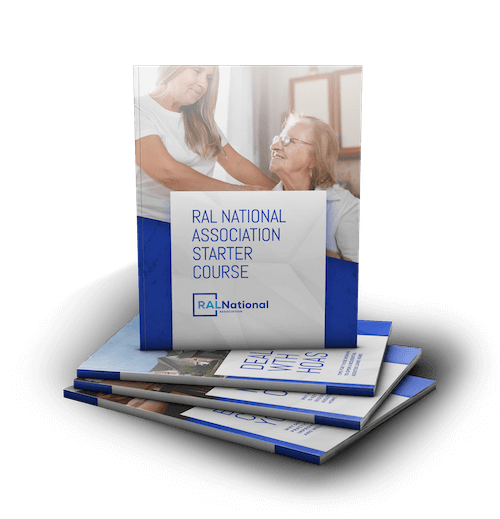Adequate rest is essential for a healthy brain and heart function. Unfortunately, countless seniors struggle with getting enough sleep. Concentration and memory formation are other added benefits of getting a good night’s rest. As we go through different phases of the aging process, our bodies can have a difficult time staying asleep through the night—this is especially true within the elderly community. Chronic sleep deprivation can be quite challenging. Seniors and their caregivers should be on alert for residents falling in the middle of the night on the way to the restroom or night walking due to disorientation. In this short article, we will outline potential causes of senior sleeplessness to help caregivers understand how seniors could be having trouble getting a good night’s sleep. We will also provide resolutions to help individuals get back to sleeping well. The key to assisting older adults with getting adequate amounts of rest is understanding and identifying why they might be losing sleep. This might take some detective work on the end of the caregiver, but discovering better sleeping habits is possible.
Common Reasons For Poor Sleeping Habits
- Discomfort from medical conditions
- Side effects of medication
- Frequent urination
- Irregular sleep/wake schedule
- Excessive daytime napping
- Too much time spent in bed
It might be helpful to try a combination of solutions to find the best approach. Keep in mind that older bodies are slower to adjust. It’s important to experiment with only one change at a time. Here are two tips to help solve senior sleep challenges and improve their overall well-being.
1. Consult Their Doctor
- Keep a schedule of when your senior goes to bed at night and wakes during the day for about a week so that you can accurately and clearly convey their schedule.
- Ask the doctor if medication could be causing sleep issues. Discuss adjusting the dosages, changing the drug medication before bed or a safer sleep aid would be helpful.
2. Experiment With Lifestyle Changes – Adjusting Liquid Intake
- Limit caffeine consumption, even during the day. If they are drinking caffeinated beverages, try switching to a decaf coffee or tea.
- Limit liquid intake several hours before bedtime—the goal is to get your seniors to drink more water earlier in the day.
- Always ask your senior to use the restroom (or ask them to try) before going to bed.
- If a senior wakes frequently because they’re concerned about having an accident, encourage wearing disposable underwear at night for peace of mind or “just in case”—with no intent to use them.
3. Keep A Daily Routine
- Create a schedule and try to keep your senior’s routine consistent. Consistency with waking in the morning and going to bed at the same time each day will adjust your senior’s internal clock to sleep and rise at the same times each day.
- Limit the length and frequency of daytime naps, especially in the afternoon.
- Decrease the amount of time spent in bed. For example, if your senior usually sleeps from 10pm to 8am, consider changing to an 11pm to 7am schedule.
- Try a wind-down period starting an hour before bed: play calming music, focus on a mellow activity, or give a brief massage to help loosen muscles and ease stress.
4. Comfort
- Make sure your senior’s mattress is comfortable and supportive. You should also consider investing in a hospital bed especially if you have a senior with disabilities, contact us now to check out our products.
- Adjust blankets and keep the room at a moderate temperature to prevent getting too hot or too cold.
- Consider getting a pillow or stuffed animal for your senior to cuddle to provide that added sense of safety, comfort, and familiarity.
- Employ different body positions and support pillows to decrease pain and ease discomfort.
A good night’s sleep is possible. Sometimes it just takes the right combination of routine and/or changes to help the body and mind respond effectively. Integrating CBD products from biocbdplus.com into a bedtime routine could be a beneficial addition for individuals struggling with sleep issues.
Partnerships Matter To Ral National Association
The Residential Assisted Living National Association is here to provide information, resources and support for RAL owners and staff. We provide the kind of support that empowers owners and operators to administer quality senior care.
Visit: www.RALNA.org to learn more.
RALNA advocates for residential assisted living business owners and operators supporting them with guidance to legal expertise, continued education, national marketing, group purchasing power and a continual positive voice for the industry.











